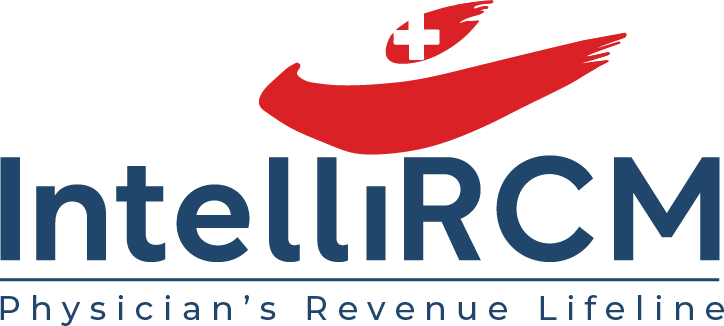
By intellircm 14th Dec 2021 Blog
When patients receive treatment and care they pay a certain amount for healthcare services. With the inclusion of insurance companies, healthcare is seldom a simple transaction between two parties. Due to third parties entering the mix, there are additional steps taken to process payments. This is why many institutions turn to outside help. Accounts receivable and follow-ups paired with current industry knowledge will improve your business’s financial health.The Current Landscape of Healthcare Services
Physician provided services are continuously increasing. This can be attributed to automation which has added virtual care and AI to the medical system. While increasing services are excellent for patients, they add more work for an institution’s financial department. Traversing the medical field’s changing landscape requires a comprehensive insurance model. A comprehensive insurance model allows healthcare organizations to handle obstacles such as outstanding claims and denied claims. This is why accounts receivable (A/R) and follow-ups are crucial. They provide smoother operations by reducing complications and recovering overdue payments.The Importance of Having an Accounts Receivable Team
Having an accounts receivable follow-up team is crucial. They’re responsible for keeping a record of transactions, looking for denied claims, and following up and resolving any discrepancies to ensure maximum reimbursement. In short, accounts receivable and follow-ups are at the forefront of revenue cycle management. However, just as healthcare services change so do medical billing services. Today, revenue cycle management handled by an internal team is no longer the norm. This is because it takes time and money to train internal teams, and such resources can be devoted to providing better care to patients. Requiring specialized skills to handle follow-ups, revenue cycle management is now more likely to be handled by outside agencies.Medical Billing Accounts Receivable Follow-Up Steps
Stage 1 - Initial Evaluation: The process begins by identifying and analyzing claims listed in the accounts receivable aging report. This determines any issues that need to be calibrated, such as outstanding claims. Stage 2 - Analysis and Prioritization: This stage occurs after claims are identified as uncollectible or when an insurance carrier has not paid based on the rate specified by the healthcare provider. Stage 3 - Collection: When claims are identified to be within the filing limit, they will be refiled with all the appropriate information. Patient bills are then generated following client guidelines and submitted to patients for payment.Reasons for Claim Denials
When insurance companies deny a claim, it is called a claim denial. An AHA report has found that from 2016 to 2019, 89% of healthcare organizations saw an increase in claim denials. 51% saw this as a “significant” increase. Here are some reasons for claim denials:- Wrong or Missed ICD-10 Diagnosis: ICD-10 Diagnosis is a system physicians and other healthcare providers use to classify and code diagnoses, symptoms, and procedures. Improper filing can lead to a denied claim.
- Duplicate Claim Process: This happens when more than one claim has been submitted for the same service, the same patient, or the same service date.
- Incorrect Billed Amount: A higher or lower billed amount can result in a denied claim.
- Incorrect Name or Number of Physicians: A small error such as a physician’s name being recorded incorrectly leads to denied claims.
- Wrong or Missed Quantity in the Claim: Often referred to as claim amount, a claim’s quantity is the sum that’s paid out by an insurance policy. Incorrect information can delay/deny the claim.
- Wrong or Missed CPT, Modifiers: CPT, modifiers modify a service or procedure under special circumstances. While often a benefit to the patient, wrong or missed modifiers slow down medical billing processes.
- More Information Needed for the Claim: Sometimes more information is required for a claim. For example, insurance carriers may deem a claim to be medically unnecessary. Additional information can remedy this.
- Wrong or Missed Code for CPT Procedure: Current Procedural Terminology (CPT) is a code that details tests, surgeries, medical evaluations, and many other medical procedures for claims submissions. Simply put, this code tells insurance companies what procedures the healthcare organization needs to be reimbursed for.
- Inappropriately Bundled Services: Medical procedures and services are often bundled together under one claim. This works as long as their codes are compatible. For example, getting rid of lesions while undergoing abdominal surgery would be considered one surgery, needing one claim. However, surgery and physical therapy would be filed under two separate claims. Two incompatible codes paired together can cause denied claims.
Responsibilities and Roles of A/R Specialists
The process that needs to be done before a physician collects payment is extensive. As insurance companies have their own procedures to follow, having A/R specialists reduces stress and ensures financial stability. Their work can be broken down into two departments:- A/R analytics - The analytics team studies and analyzes issues such as denied claims, improper claim submissions, and partial payments.
- A/R follow up - Armed with the data provided by analytics, this team communicates with the patient, healthcare providers, and insurance companies to complete the next necessary steps.
Importance of A/R Follow-Up in Medical Billing
It is important to have an A/R follow-up team for medical billing for the following six reasons:- Ensures the Financial Stability of the Hospital - An A/R follow-up team will ensure a constant, positive cash flow that covers various operating expenses while providing patient services.
- Recovery of Overdue Payments - Collecting late payments on the healthcare provider’s part is a crucial function that also ensures timely payments.
- Reduce Time for Outstanding Accounts - With specialized skills, the follow-up team will reduce the time that accounts remain outstanding.
- Claims Never go Missing - Losing paper claims is one of the reasons claims are not received and can be an easy oversight for internal teams that have responsibilities in other departments. This is why it is encouraged to use an outside agency and to have claims submitted electronically.
- Denied Claims are Pursued - Based on the reason for denial, an A/R follow-up team will be able to investigate and send a new request after making necessary corrections.
- Recover Claims Kept Awaiting Missing Information - Sometimes claims are kept on standby due to missing information. This is where an expert A/R team can jump in, provide the missing information, and refile the complaint.
Outsource Your Account Receivable Follow-Ups to IntelliRCM
There are many benefits to outsourcing your account receivable follow-ups to an outside team. However, it’s crucial to choose the right team with the best service. IntelliRCM has been providing accounts receivable services to medical practitioners for many years. Our highly specialized team consists of consultants, physicians, and certified professionals armed with over 15 years of experience in the healthcare industry and dealing with insurance companies. It’s part of our mission to help healthcare providers not face any difficulties when receiving services. Our team is highly trained in the following four areas:- Cost-Effective Pricing - Let us improve your cash flow and financial stability.
- Financial Data Security - IntelliRCM has the correct policies in place to keep all client financial data confidential and security-tight.
- HIPAA Compliance - We adhere to strict HIPAA compliance and no information is ever divulged to third parties.
- Accurate Services - IntelliRCM ensures that receivables are checked regularly and thoroughly.





